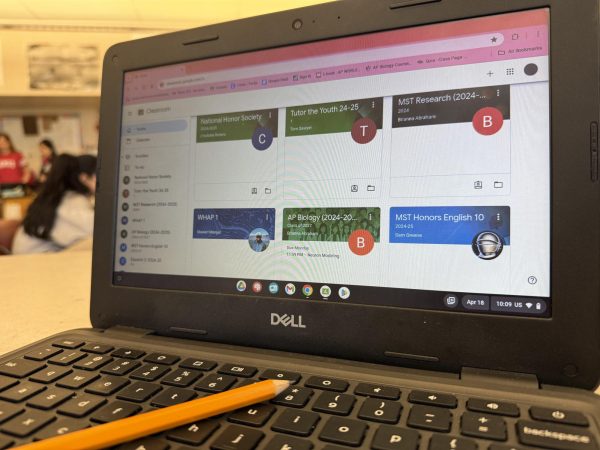On March 20, President Donald Trump signed an executive order calling for the U.S. Department of Education (ED) to be defunded.
Trump claims that by dismantling the department, he will give power back to the states to make decisions on education policy.
The ED was first established in 1979 under President Jimmy Carter to ensure equal educational opportunity and improve the quality of education programs.

According to the ED’s website, it is in charge of distributing federal funds, protecting students from discrimination, collecting data from schools, supporting low income and disabled students, and managing financial assistance programs.
As the ED was established by Congress, it also has to be eliminated by an act of Congress. However, the president can still make significant changes to the department such as cutting staffing, which would make it more difficult for the ED to fulfill its duties.
Not all schools rely equally on federal funding. The amount allocated to a given school district depends heavily on the district’s wealth demographic and availability of state funding.
Nationwide, an average of 14%of a school’s funding comes from federal sources. For the average Washington school, federal funding makes up 6.95% of total funding, according to the Washington Office of Superintendent of Instruction website.
Camas School District (CSD) Superintendent John Anzalone said that only about 1% of the CSD’s budget comes from the federal government.
“We do not anticipate any interruption to that funding, as the federal laws that allocate those resources take precedence over potential changes to the ED’s structure,” Anzalone said.
However, Anzalone noted that if there is a change in the department, he worries it will disproportionately affect certain students.
“My primary concern would be the impact on students from low-income households,” Anzalone said.
The ED is responsible for distributing Title I funding. Title I is a federal program aimed at improving academic performance, especially among students from low-income families. This can include paying for teachers, specialists, and supplies.
Although the amount of federal funding in the overall budget is low, CSD staff, families, and students fear that disadvantaged groups will be the ones to feel the impact if that funding is taken away.
When asked about possible future budget cuts as a result of the recent executive order, Anzalone said that he does not anticipate any.
“Our district relies most heavily on state funding and local levies, which are not directly tied to federal decisions,” Anzalone said.
CSD’s recent budget cuts and staff reductions are not related to the Trump Administration’s plans. I the result of decreasing enrollment levels, loss of revenue, and COVID-19 relief funds running low.

Since the Trump administration’s executive order to defund the ED, many students have been concerned that defunding the department would affect the quality of education in public schools.
“A good education is fundamental for learning how to be a part of the world around you,” Camas High School (CHS) senior Camdyn Ryan said. “It teaches you critical thinking, creativity, and helps you figure out what you’re good at and who you’re meant to be.”
Ryan also worries about how the possible dismantling will affect students with disabilities.
“It will put the Individuals with Disabilities Education Act, which gives special needs students free education, at risk,” Ryan said.
According to the Individuals with Disabilities Education Act (IDEA) website, IDEA makes free and appropriate public education available to students with disabilities. Even if the ED is defunded, programs like IDEA and IEPs would still exist, but there would likely be less enforcement to ensure that schools follow through with them.
Many students also stressed the importance of education not only in identity, but in being a politically literate citizen.
“You have to be educated to be a productive member of [a] democracy,” CHS sophomore Olive Gilbert said. “If there are states losing a large portion of their funding, they won’t be able to teach things like history as effectively.”
Ryan agreed, emphasizing how crucial education is for voting.
“School is essential for creating politically competent civilians,” Ryan said. “Particularly in this age where the nation is ablaze with conspiracy theories and misinformation.”
Ryan also spoke about the power younger generations have in changing legislation and speaking out against things they do not agree with.
“Stay informed, write emails to congresspeople, and vote or tell people to vote for politicians who will defend our right to an education,” Ryan said.
“Protests can work too and make people listen when they might not have,” Gilbert said.
As the future of the ED remains uncertain, many hope that equitable and quality education stays at the forefront of the conversation and not cast to the sidelines.






































